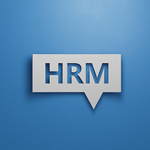How Many Staff Members Do You Need with an HR System?

Introduction
In today’s fast-paced business world, efficiency is key. Implementing a robust HR system can significantly streamline your operations. But how many staff members do you really need to manage this system effectively? This article explores the ideal number of HR personnel required, ensuring your business runs smoothly without unnecessary overhead.
Understanding HR Systems
An HR system is designed to handle various human resource functions. These include employee data management, payroll processing, recruitment, and performance evaluation. The right HR system can automate many of these tasks, reducing the need for a large HR team.
Assessing Your Business Size
The size of your business plays a crucial role in determining the number of HR staff required. For small businesses, an HR system can handle most tasks with minimal human intervention. In contrast, larger enterprises may still need a dedicated team to manage more complex HR functions.
Small Businesses: Lean and Efficient
For companies with fewer than 50 employees, an HR system can often be managed by one person. This individual can oversee automated processes and handle any exceptions that arise. The HR system’s efficiency allows for a lean staff structure, saving on labor costs.
Medium-Sized Enterprises: Balanced Approach
Businesses with 50 to 200 employees typically need a more balanced approach. While the HR system handles routine tasks, a small team of 2-3 HR professionals can manage more intricate issues. These may include employee relations, compliance, and detailed performance reviews.
Large Corporations: Comprehensive Management
In large corporations with over 200 employees, a more extensive HR team is often necessary. Despite having an advanced HR system, the complexity and volume of HR tasks require specialized staff. A team of 5-10 HR professionals ensures thorough management of all HR functions, including strategic planning and employee development.
Key Functions of HR Staff
HR staff perform several critical functions that an HR system cannot fully automate. These include:
- Employee Relations: Managing conflicts and fostering a positive work environment.
- Compliance: Ensuring the company adheres to labor laws and regulations.
- Recruitment: Conducting interviews and making hiring decisions.
- Training and Development: Implementing programs to enhance employee skills.
Optimizing HR Efficiency
To maximize the efficiency of your HR department, it’s essential to integrate your HR system with other business software. This integration ensures seamless data flow and reduces manual data entry. Additionally, regular training for HR staff on the latest HR system updates can further enhance productivity.
Conclusion
Determining the ideal number of HR staff for your business depends on various factors, including business size and complexity. An efficient HR system can significantly reduce the need for a large HR team, allowing your business to operate more cost-effectively. By understanding your specific needs and leveraging technology, you can maintain a lean and efficient HR department that supports your business goals.
Incorporating an HR system into your business strategy is a smart move. It not only streamlines operations but also allows your HR team to focus on more strategic tasks, driving overall business success.





